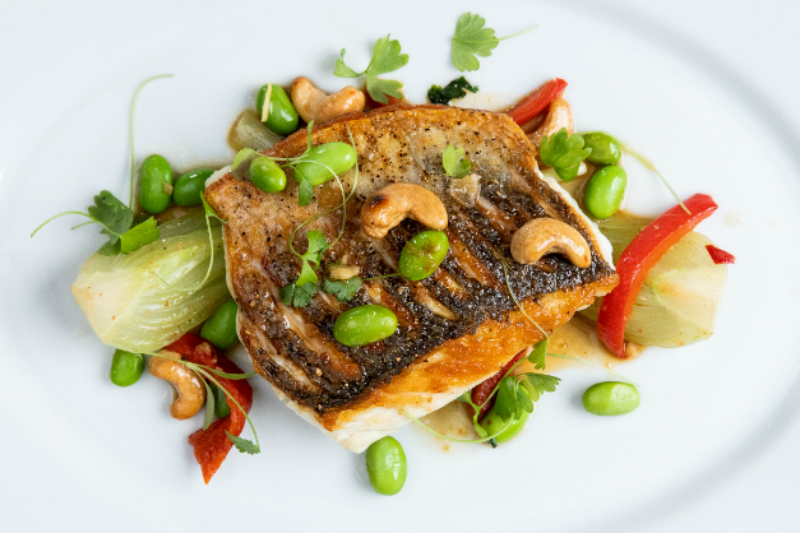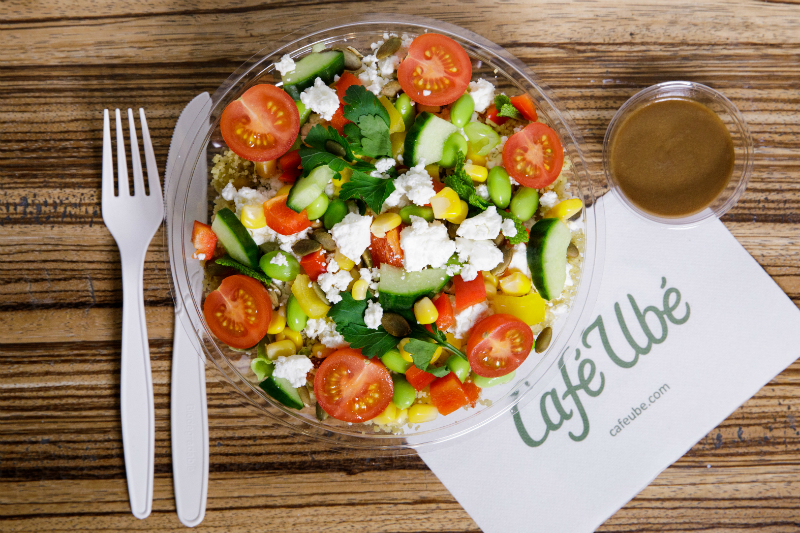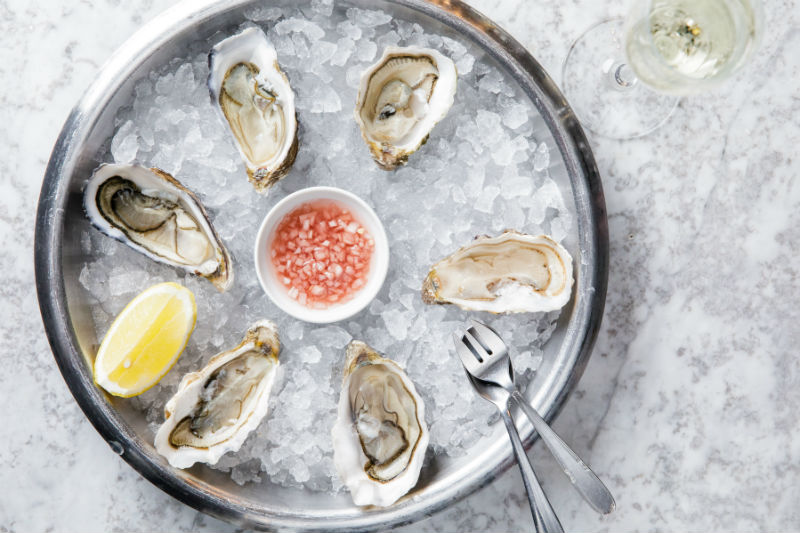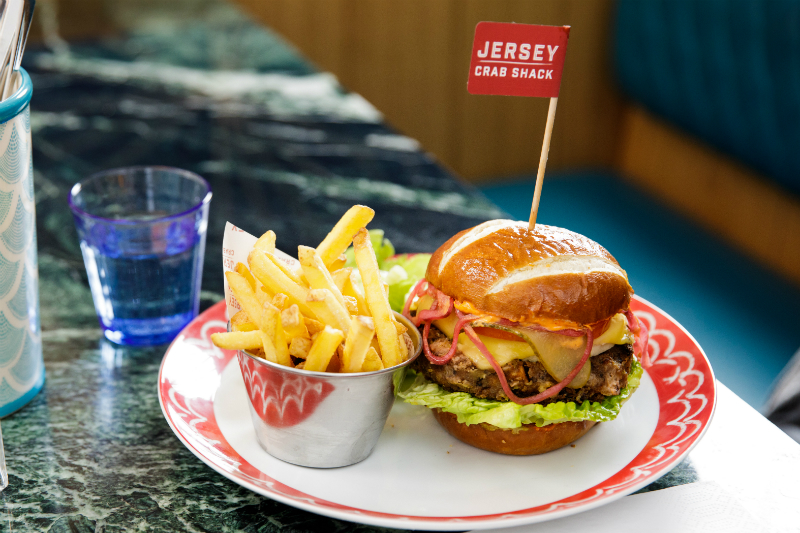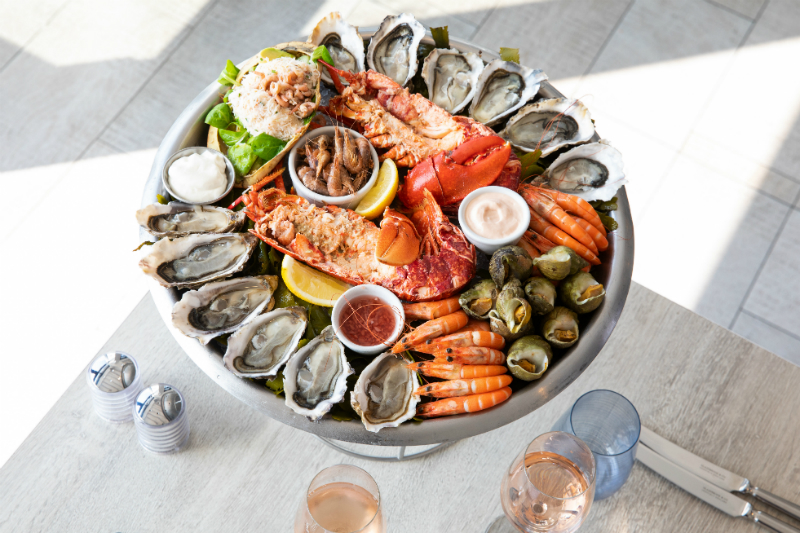Eating out with a Food Allergy
10.10.19 Back
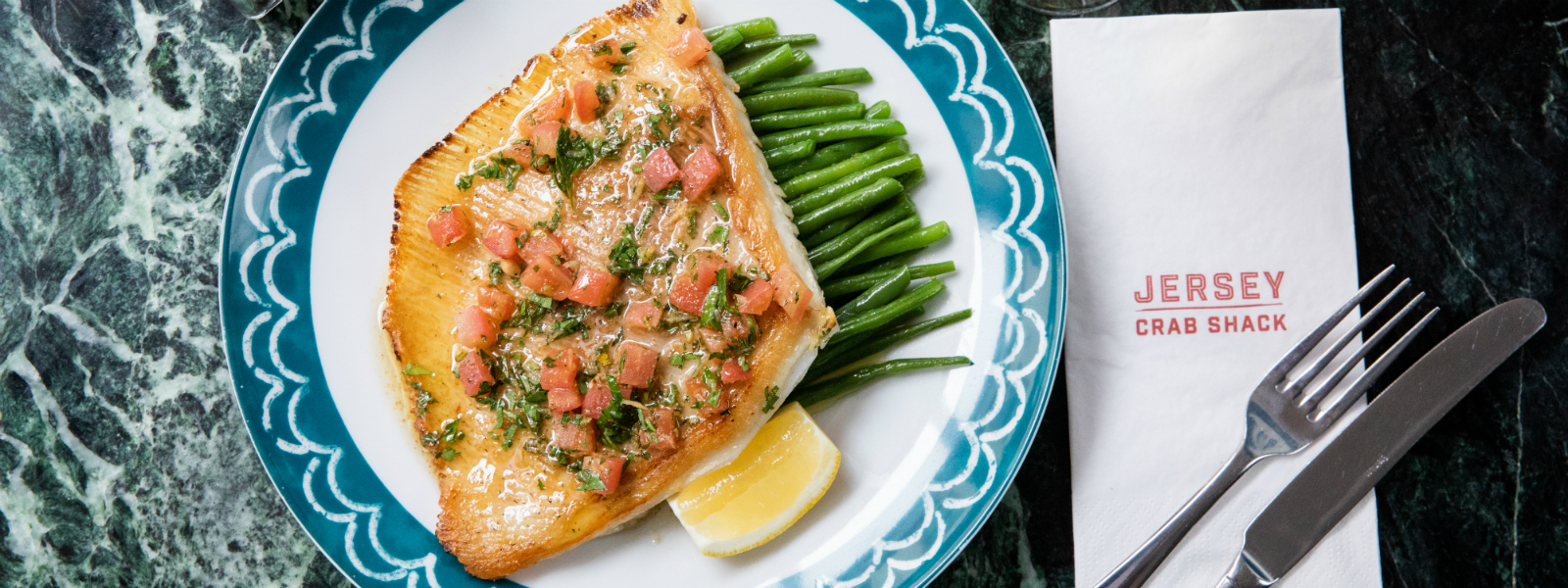
Eating out should be an enjoyable experience, but if you have a food allergy or intolerance, the thought of a meal in a restaurant can make you anxious. As a customer, how can you be sure of which ingredients are in which dish? How can you be confident that the chef and restaurant staff will understand your allergy or intolerance? And how do you know that the restaurant will take your dietary requirements seriously?
At JPRestaurants, we understand how serious food allergies can be. That’s why, as of October 2019, we have updated our approach to food allergies so that our processes are even more robust. We want to make sure that all of our customers can eat at our restaurants and cafés with confidence, and, while we can’t protect against every eventuality of minor cross-contamination for all allergens, we want to give customers accessible information to help them to make an informed decision before they dine.
Our process starts with recipe development around three months before our seasonal menu changes. As part of this process, we sometimes decide to exclude common allergens from our dishes so that they appeal to a wider group of people – for example, we no longer use peanuts in any of our kitchens, and we have made most of our batters so that they have no gluten containing ingredients. We also carry out checks on our suppliers, to make sure that we are confident in the ingredients they deliver to our kitchens.
The second stage of our process is to follow key parts of the European regulations on allergens. Although these regulations aren’t law in Jersey, we recognise the significance of food allergies and intolerances, and we want to give customers enough information to make an informed choice about whether they should dine in one of our restaurants, and which dishes they should choose from.
To help customers with allergies or intolerances, we publish a list of all dishes available in our restaurants and provide a simple means of identifying which dishes contain any of the 14 main allergens. This Allergen Menu is available on our café and restaurant websites, and customers can also ask for a copy when dining at any of our restaurants.
Separately, for those with dietary preferences but not allergies, we also publish key indicators on our main menus to give information about popular dietary choices – for example, our menus show clearly which dishes are Vegetarian (V), Vegan (VV) or Dairy Free (DF), and which dishes have no gluten-containing ingredients (NGCI). This helps customers to make an informed choice about which dish they should order, and avoids confusion between customers and our teams.
The third part of our process involves training our staff. All of our managers, order-taking wait staff, chefs and kitchen staff involved in preparing food receive training about allergens and intolerances, where we explain our processes to them, and emphasize the importance of observing the procedures we have in place. We make sure that all of our team understand the potential dangers that certain ingredients can pose, and we ask them to follow our procedures to give customers the information that they need.
As part of these procedures, when a customer making a booking mentions an allergy, our team will email them before their meal to explain our allergy process. From October 2019, our servers will also ask every customer who dines with us whether they have an allergy before they place an order, and, if they reply that they do, the server will give them an Allergen Menu to choose their meal from. This Allergen Menu shows, in a simple way, which dishes contain which of the 14 main allergens – so customers can easily identify which dishes might be suitable for them.
When the customer chooses a dish, the server will take their order , and will put a flag against the dish on the electronic order system to warn the kitchen of the customer’s particular allergy or allergies. At Jersey Crab Shack where orders are principally via an app, at the end of the list of menu items there is an allergy section where you can flag any of the 14 allergens so the same process is followed. We just ask at Jersey Crab Shack that orders via app are made separately for the person suffering from a severe allergy.
The kitchen will then take all reasonable precautions to avoid cross-contamination, and will also put a blue allergen flag on the dish so that servers and customers know that the kitchen has received the message. This blue flag gives customers the confidence that their allergy has been understood by the kitchen, and provides reassurance that every reasonable step has been taken to make sure that the dish has not been contaminated by the relevant ingredient(s).
For those who are allergic to an ingredient that is not one of the 14 main allergens, we unfortunately cannot follow the same approach. There are risks from allergens contained in bought-in ingredients, and we cannot follow the same level of process around handling non-key allergens. If you have a life-threatening or severe allergy to an ingredient that is not one of the 14 key allergens, you would therefore need to decide whether you are happy with our approach.
Our approach also extends to modifications to our dishes. All customers have the opportunity to request certain alterations to a dish (such as removing a sauce or a side), but, while modifications may seem easy to accommodate, we ask customers to understand when they are declined. Modifications can impact on the efficiency of our service to others, and in some cases, may be impossible if elements of a dish are pre-prepared.
We strongly recommend that customers with severe food allergies do not request such modifications, and instead choose a complete dish from our Allergy Menu, which does not contain the relevant allergen. This advice forms part of our Food Allergy Approach, and whilst there is always the possibility of cross-contamination, it means that the risk of potential communication errors leading to contamination is reduced.
Ultimately, anyone with an allergy knows that no restaurant or food supplier can ever offer a 100% guarantee that their meal will be allergen-free: human error can occur, and it’s impossible to ever completely rule out cross-contamination. But, at JPRestaurants, we invest considerable resources to make sure that customers can be confident when they dine with us. Our aim is to provide enough information for customers with allergies to make a decision about whether or not they should dine in our restaurants, or whether or not they should choose a particular dish.
If you have an allergy and you would like more information, or if you would like to give us any feedback, you can contact us at any time via the contact forms on our website.
Further information about our approach to food allergies and intolerances is set out in our Food Allergy Approach. Additional information on food allergies is also available from Allergy UK.





